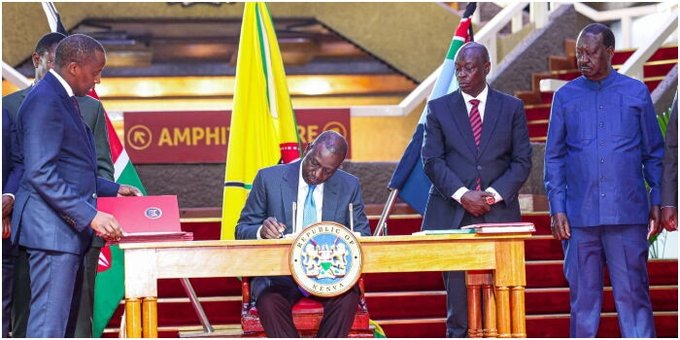The United States has voiced concerns about Kenya’s democratic stability amid recent crackdowns on protests and escalating economic grievances.
U.S. officials, notably during a visit by Under Secretary Uzra Zeya, highlighted rising cases of police violence against protesters, forced disappearances, and restrictions on freedom of assembly as key threats to Kenya’s democracy.
Despite Kenya’s 2010 Constitution guaranteeing civil rights, there have been reports of police detentions and abuses that disproportionately target anti-government demonstrators.
This has drawn international criticism, as many argue that a strong democracy requires not only free speech and press but also protections against state violence, especially during times of political unrest.
Kenya’s recent protests initially focused on the controversial Finance Bill, which imposed tax hikes, fueling frustration over alleged government corruption and mismanagement of public funds.
Many Kenyans accuse the government of prioritizing foreign relations and elite interests over public welfare, with specific criticism aimed at President Ruto’s foreign travels and spending habits.
This economic strain has amplified calls for accountability, as Kenyan citizens face inflation and increased costs of living without sufficient social support.
Public outcry has centered around how tax revenue, often funneled through foreign debt repayment and luxury expenditures, neglects essential services for the average Kenyan.
The United States’ response has been somewhat mixed. While Washington has supported Kenya’s humanitarian efforts, particularly in peacekeeping and refugee support, its close relationship with the
Ruto administration has come under scrutiny. Some Kenyans view the U.S. as overlooking critical issues in favor of maintaining regional security alliances.
U.S. officials have expressed their desire to see Kenya uphold democratic principles, but critics argue that a more vocal stance on protecting civilian rights would better support Kenya’s democracy and stability.


